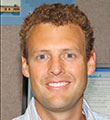24 September 2013
View Webinar Content
Presentation—Introduction to the webinar and panelists
Presentation—Development Impact Assessments for Transportation
Transcript—Webinar audio transcript
In this webinar—which was part a webinar series on planning and financing sustainable, low-carbon urban transportation—our presenter, Caley Johnson of the U.S. National Renewable Energy Laboratory, addressed:
- What is meant by “development impacts”
- How identifying and evaluating the impacts of implementing sustainable transport systems on national development priorities, such as economic growth, health, gender equality, and others can contribute to achieving transport and development goals
- Tools, approaches and methodologies available to assess development impacts of sustainable transport systems.
- Choosing the right approach to development impact assessment
- Case studies on how an understanding of development impacts of transport policies and programs has been applied in Asia and around the globe.
Presenter
 Caley Johnson, Transportation Market Analyst, U.S. National Renewable Energy Laboratory (NREL)
Caley Johnson, Transportation Market Analyst, U.S. National Renewable Energy Laboratory (NREL)
Caley Johnson is a transportation market analyst for the U.S. National Renewable Energy Laboratory (NREL). As an analyst, Caley assesses the progress of the alternative fuel and vehicle technology markets for the U.S. Department of Energy (DOE) and U.S. Congress. This includes quantifying greenhouse gas, petroleum use, and air pollution impacts associated with the numerous projects and policies enacted through DOE’s flagship deployment program, Clean Cites. Caley also assesses the economic impacts of alternative fuel and advanced vehicle projects in the United States and other countries, including the impacts of economic externalities. He developed multiple models to help with these assessments and held a LEDS GP workshop to teach others how to use them and those of his colleagues. Before working at NREL, Caley was a project manager for the Climate Protection Partnerships Division of the U.S. Environmental Protection Agency. He holds a bachelor’s degree in biology from the University of Colorado and a master’s degree in environmental management from Yale University.
More in the Series
Are you interested in other webinars on this topic? If so, join us for other webinars in the Transport Webinar Series.
